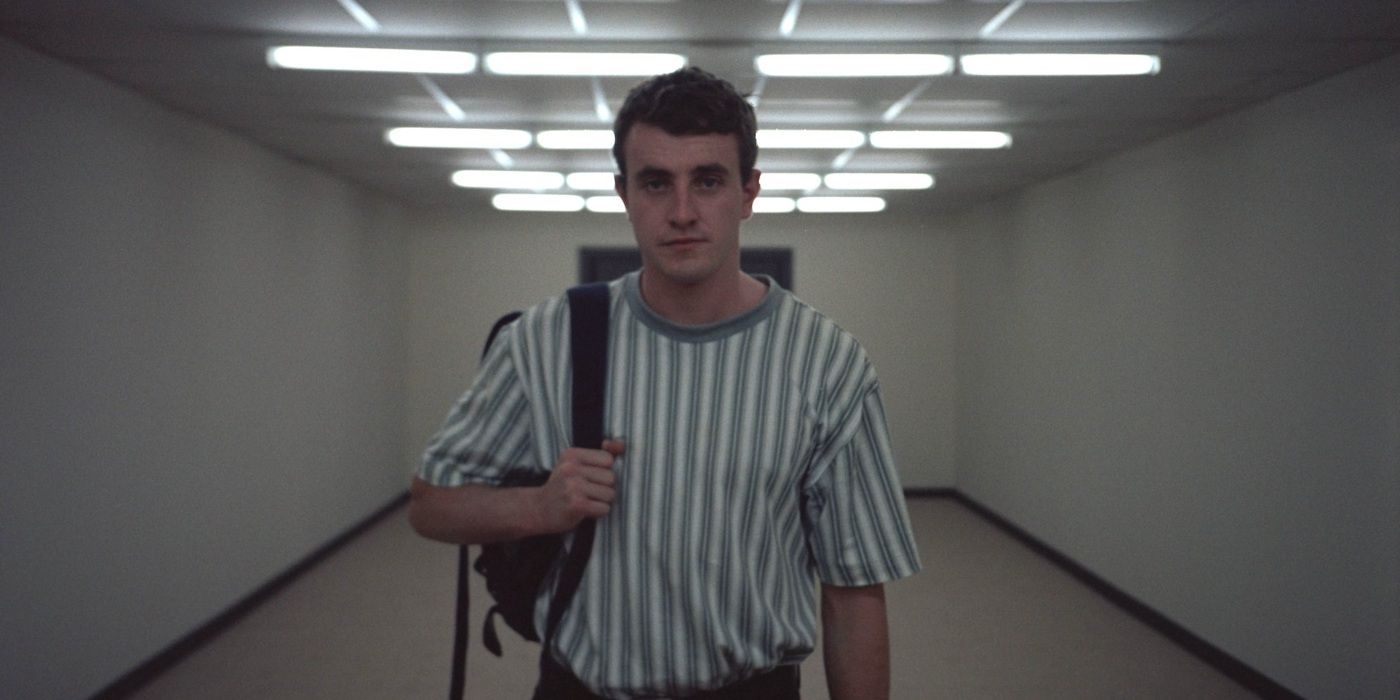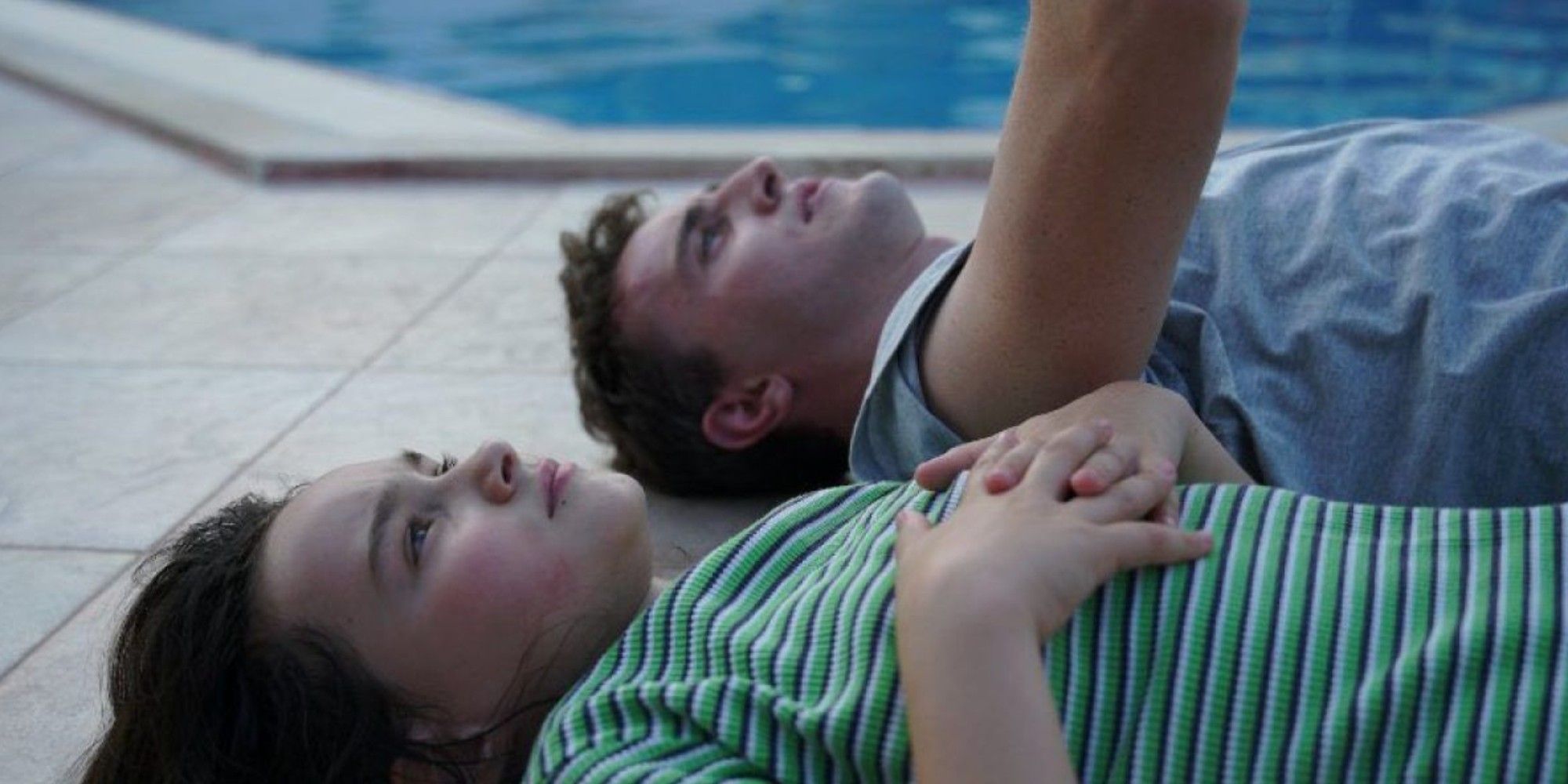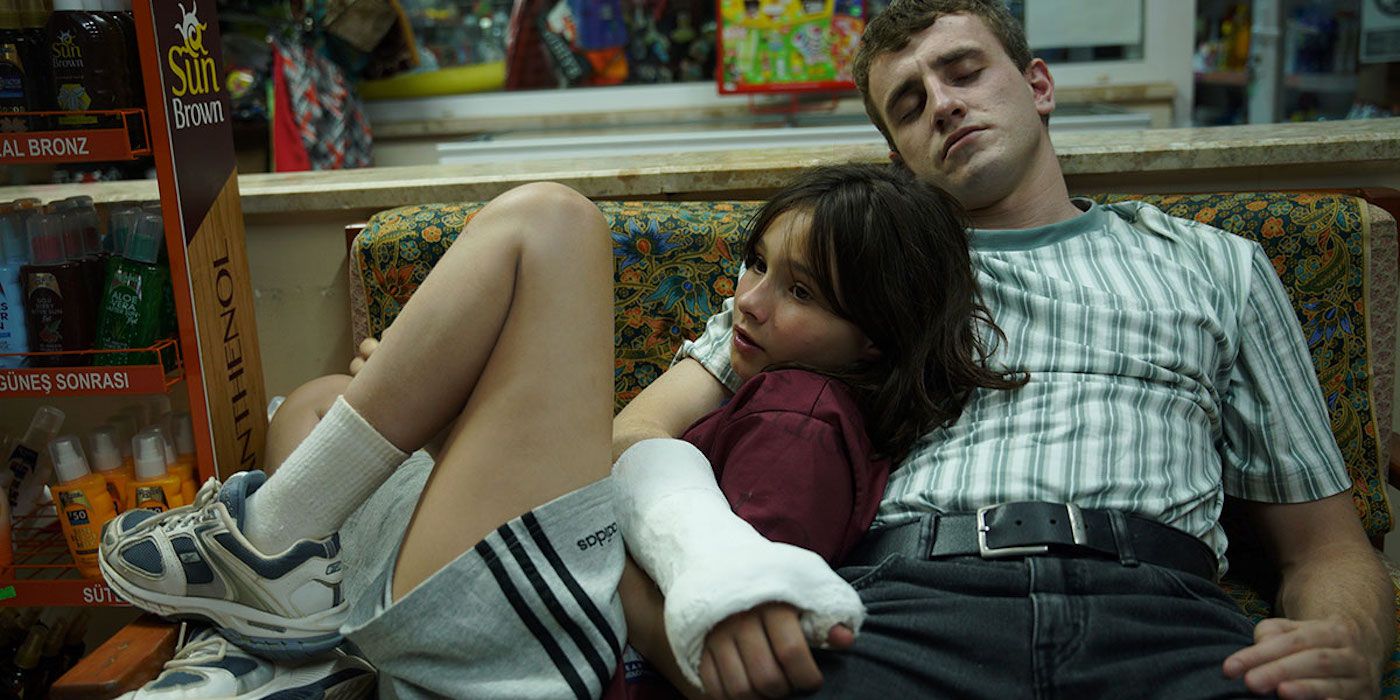This review was originally part of our 2022 Toronto International Film Festival coverage.
There are some films that manage to so thoroughly bring to life the fragments of memory that you feel as though you are reflecting on your own life along with it. Aftersun, the stunning debut feature from writer-director Charlotte Wells, is one such work. While clearly reflective about the past and the way we recall it as we move into the future, there is an enduring quality to it that ensures it is a film that will echo in your mind for time eternal.
The film places us with the young Sophie (Frankie Corio) who is on a holiday to Turkey with her father Calum (Paul Mescal). It is just the two of them though this seems to largely suit each just fine as they initially alternate between moments of peaceful relaxation and joyous play. However, their time is limited as no vacation away can last forever even when we may wish it to. Sophie, in her smart and silly way, has begun to sharply observe the world around her. She is at the age where much is still new though in a way that she can start to make sense of. Much of this includes her father who, despite the way he tries to keep closed off, is frequently struck by sudden moments of darkness. The film is filtered through the eyes of Sophie who clearly cares for her father though is not sure about what to make of a young man who is plainly troubled. He is not an unkind person, just one who is deeply uncertain about himself and what role he will have as a father while still trying to determine his own life.
There is a quietly profound poetry to seeing this all play out as the film feels both endlessly patient yet effortlessly poised. Each scene between the father and daughter feels so completely lived in, making for an experience where you begin to forget you are watching a movie as opposed to just two people sharing a moment together. There is so much to get immersed in as the details of every moment are overwhelming and minimalistic.
It shows that a simple story can sing precisely because of how it finds beauty in the everyday. The dialogue is so natural yet no less resonant as we get to see Mescal bring all the haunting nuances of Calum out. There is something that is weighing heavily on him, which the film keeps hidden as he does from his daughter, making for a complex cocktail of a character. He can turn on a dime, going from being more charming and comedic to somber with a subtle change in expression. One moment Calum takes alone to himself shows just how broken he is despite all his gentle bravado he puts forth. Despite all the challenges that can come from being a child actor, Corio also never misses a single beat in a dynamic debut performance.
There is a tragedy to everything as we feel just how fleeting this time Calum and Sophie get to share really is. At one point, she wonders aloud why they don’t just stay here and spend their days jumping around from place to place. It is an innocent line, almost a throwaway, but it brings with it a devastating impact. There are countless moments like this as every conversation, even the ones about ordinary topics, feel precious in a way that we can’t always put our finger on. The entire experience is besought by a looming sense of loss, as if this entire time is one that will inevitably slip through our fingers forever.
Much of this comes from how the film makes use of recurring home videos, often playing out in extended sequences as the two talk together. Sophie seems aware of the sadness that is swallowing up her father and wants to ask him about it, though often lacks the precise words to do so. By capturing these moments, she seems to want to make them into memories that will allow her to better understand them later. It creates slices of life in what is already a slim slice-of-life picture, as if it is carving away less and less from the time that only so much of can be preserved. They are both clinging to moments in their lives that can only last so long.
There is an almost dreamlike quality to much of the film, especially in the glimpses we get of Calum where he is removed from the main setting. We only catch every other frame as he appears to be in a club of some kind with a strobe light leaving him frozen in time. This all is increasingly affecting the more it is used and in how it becomes incorporated by the end. The way music is overlaid in one particular concluding sequence cuts through all the liminality of time and space. It becomes a sensory experience that is evocative yet precise, making clear just how in command of everything Wells remains. The editing is also magnificent, maintaining movement in a way that is as mesmerizing as it is melancholic.
There is an audacity to much of the way it all shifts into being more emotionally ephemeral, but there is no better way to capture the elusive emotional states being expressed. The way the visuals all dance across the screen in flashes of brilliance that strip away the barriers between form and feeling until they become one is nothing short of spectacular. This could easily leave some reeling, but it serves as a cinematic embrace that has the power to squeeze the breath out of you until there is nothing left. It washes over you, hitting you with wave after wave of vibrancy until it subsequently pulls the rug out from under you. What remains is a work of remembrance, overflowing with all the joys and pains to be found in looking back, that shows just how tenuous our connection to the past can really be. After all is said and done, it is films like Aftersun that will stand the test of time long after we are gone.
Rating: A+
Aftersun is now on vod.



